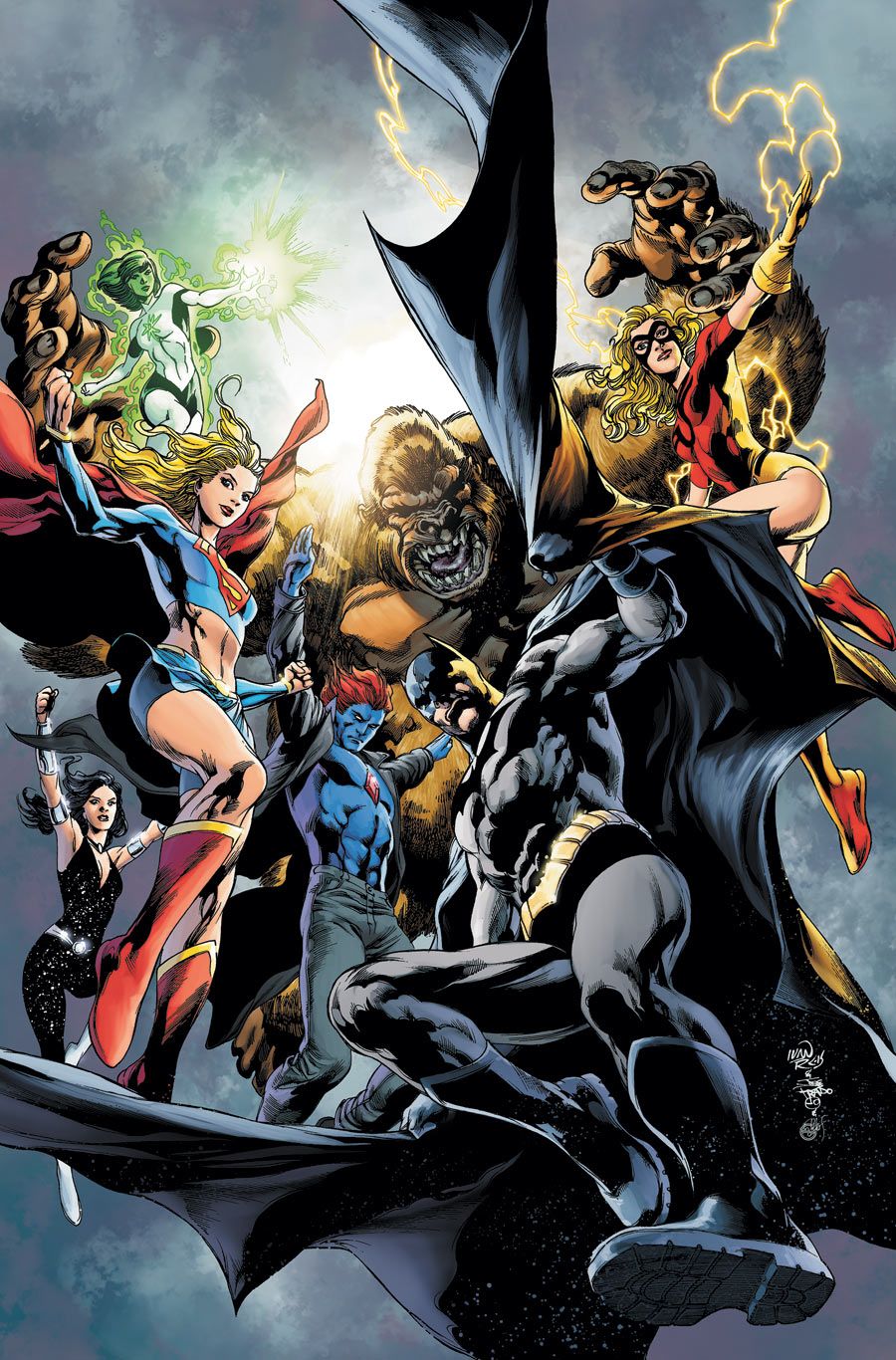James Robinson was able to accomplish two things this month in "Justice League of America." He was able to wrap the series up -- disbanding the League in the process -- and he was also able to provide himself with some therapy.
This issue features the League all deciding to go their own way. Unlike Justice League disbandings in the past, no one is left in the clubhouse. No one is there to select new members. Every character, for reasons all his or her own, has decided that while their time with the League was fun, it's time to move on. None of the characters, however, cite the pending reboot of their universe as their reason for leaving.
The therapeutic aspect of this comic book comes in the form of a conversation between Dick Grayson/Batman and Donna Troy. During their conversation, Donna asks, "Think they'll remember us?" The duo then proceed to discuss the merits of being remembered or not, as Robinson's run with the League fades away like the after images of the former Leaguers who have teleported away to the next chapters of their lives.
With this issue, Robinson's League is no more, but it does hold a spot in the legacy of the Justice League, alongside the "Bwah-ha-ha" era DeMatteis-Giffen-Maguire League, the Jurgens League, the Meltzer League, and even Gerry Conway's Motor City League. These Leagues may not be the first one you think of when you hear the words "justice" and "league" together, but they are part of the history which is soon to be, well, history.
The art by Daniel Sampere is not excessively flashy, nor is it plain. Robinson's script calls for Sampere to draw everything from the Metal Men to Jemm and Dark Opal. Sampere's work handles everything that Robinson's story throws at him, and I found myself hoping to one day see more of this duo, perhaps as they tell the mostly-untold tale of the Saturn-Thanagar War.
Robinson's run never seemed to catch on. His stories had gravitas that demanded their impact to be reflected across the DC Universe, but rarely did other creators follow his lead. There were ideas that never had time of page properly devoted to them, like the introduction of any number of characters including Dark Crow and Samurai or concepts like Justice League Africa. Robinson, in the words of Batman, "did what we could with what we were given and I'm proud."
Robinson should be proud. He gave readers some fun stories with the characters he was allocated. I just hope we get to read more from Robinson in the new DC Universe this fall. As for whether or not anyone will remember this Justice League of America? I will.

